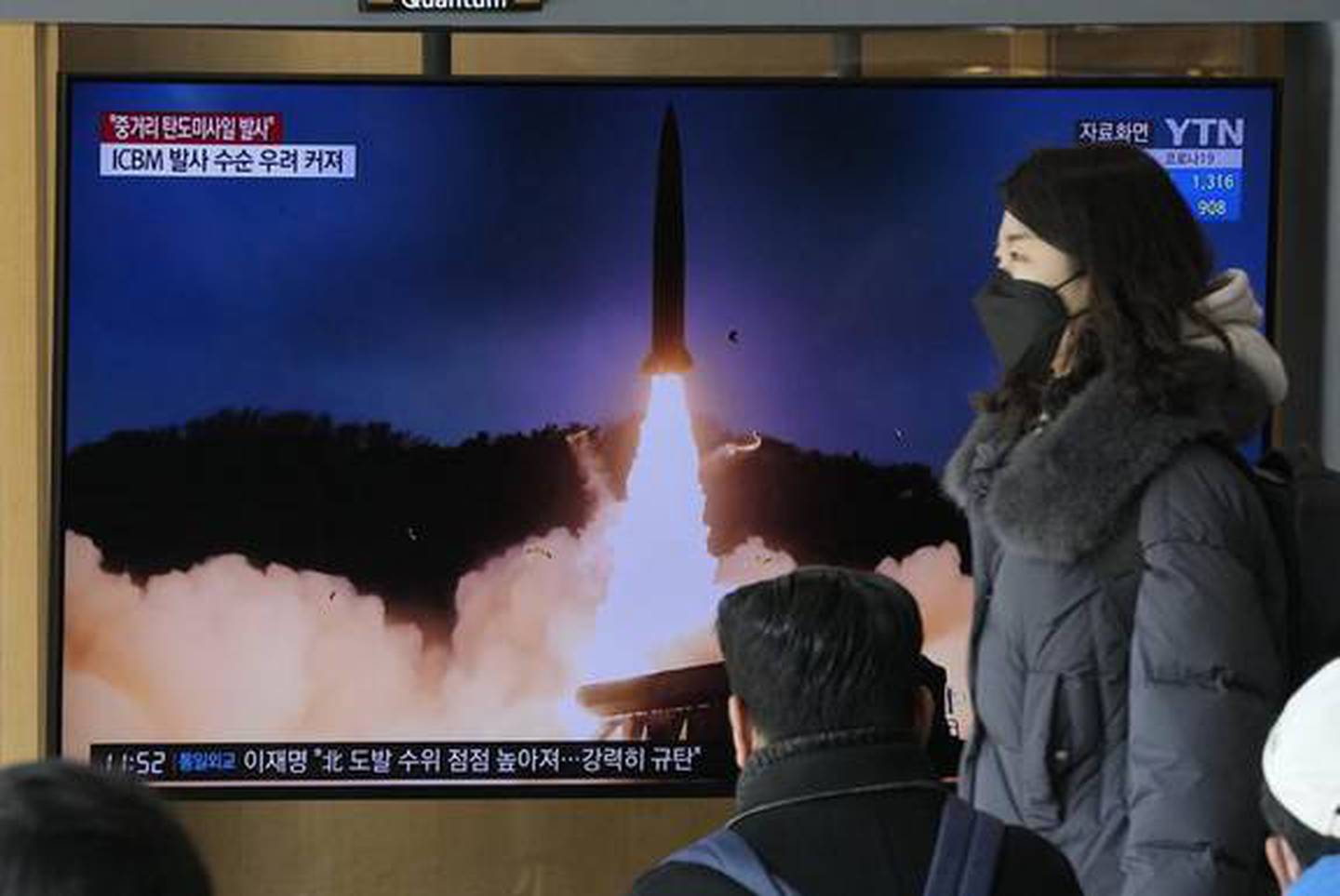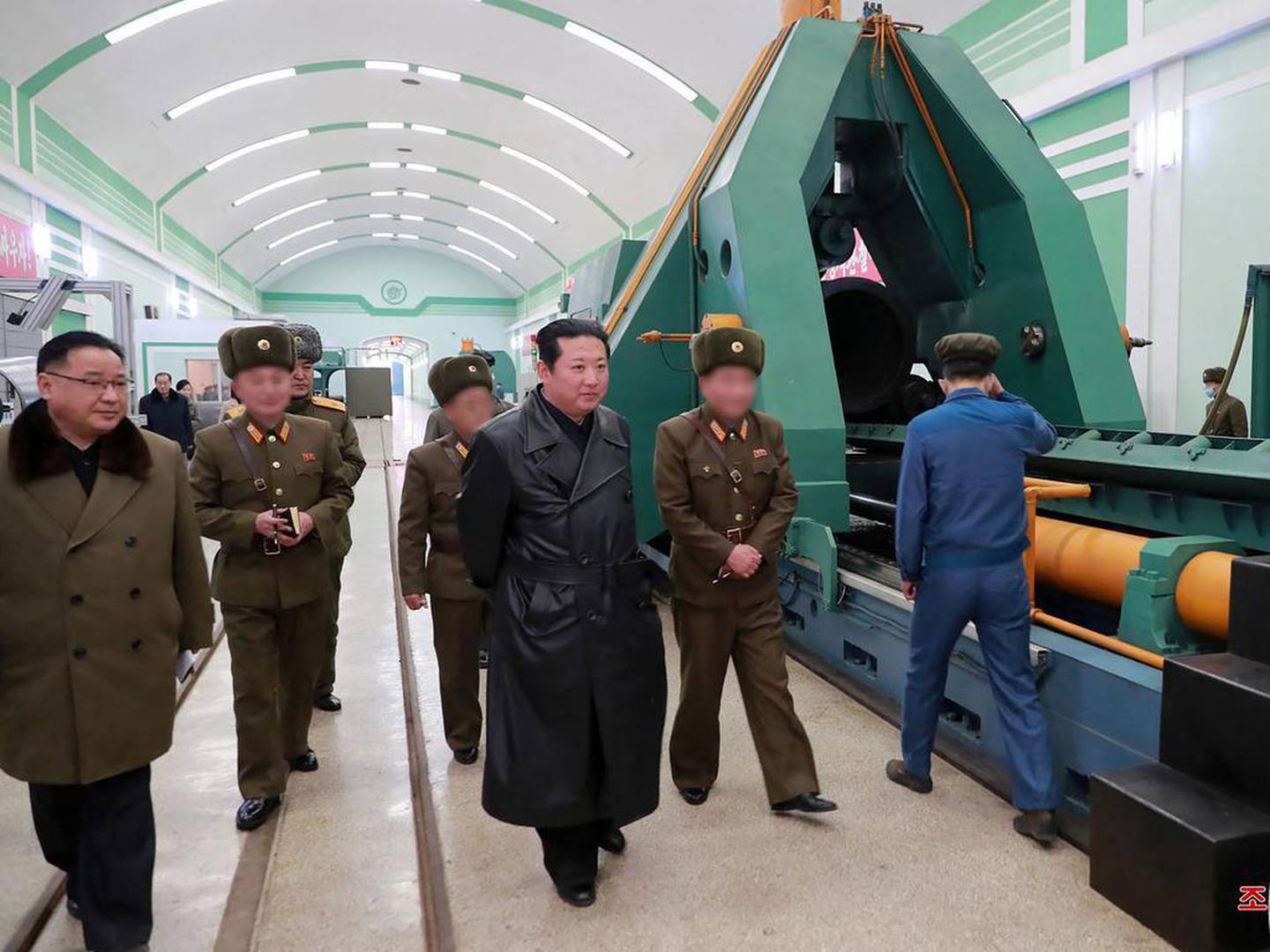North Korea has sent out another chilling message as the hermit kingdom continues with its latest string of missile tests.
Kim Jong-un has continued to flex his military's arsenal despite increasing tensions with the US, launching record numbers of missiles in 2022 in what has been described as a brash political move from the authoritarian state.
Despite suffering through a reported food shortage, North Korea has continued to increase its offensive capabilities, and hasn't been shy about provoking some of the world's largest superpowers in recent months.
Up to seven hypersonic missile launches have been reported since January, including the first test of the Hwasong-12 intermediate-range ballistic missile since 2017.
A statement released by the North Korean Foreign Ministry this week openly called out the Biden administration and threatened their purported missile array could "shake the world" with US territories within range.
"In today's world where many countries waste time dealing with the United States with submission and blind obedience, there's only our country on this planet that can shake the world by firing a missile with the US mainland in its range," the statement reads.
The Ministry said the launches were part of the nation's "war deterrence" plan and represented "remarkable achievements" for the struggling state of approximately 26 million, where sanctions and supply issues caused by the Covid-19 pandemic have wreaked havoc on the bottom line.
"There are more than 200 countries in the world, but only a few have hydrogen bombs, intercontinental ballistic missiles, and hypersonic missiles."

North Korea's missile launch is shown during a news programme at the Seoul Railway Station. Photo / AP
The US State Department swiftly responded to the North Korean Ministry's boast, using the latest weapons test as proof Kim Jong-un's dynasty continues to "constitute a threat to international peace and security".
"Our goal remains the complete denuclearisation of the Korean Peninsula. The United States harbours no hostile intent toward the DPRK [Democratic People's Republic of Korea]," the spokesperson said in a statement to The Hill.
"The DPRK constitutes a threat to international peace and security and the global nonproliferation regime. The United States has a vital interest in deterring the DPRK, defending against its provocations or uses of force, limiting the reach of its most dangerous weapons programs, and above all keeping the American people, our deployed forces, and our allies safe."
South Korea was put on high alert earlier in the year after detecting a missile launched by its neighbour.
A government official said the "unidentified projectile" landed outside Japan's exclusive economic zone.
It is said to have travelled some 500km from its launch location.
While some believe an attack from North Korea on another developed nation is highly unlikely, the development of nuclear arms and continued testing of missiles is remains a concern for the US.
"Kim's technological advances and demonstrated capability to potentially hit the United States with a nuclear-tipped intercontinental ballistic missile locks in Washington's attention, which in turn affords him leverage to shape and drive the relationship with his neighbours," former CIA analyst Jung Pak said in a previous column.

Analysts believe Kim Jong-un's missile threat 'affords him leverage to shape and drive the relationship with his neighbours'.
In another telling turn of events, United Nations investigators this week revealed North Korea has been using millions in stolen cryptocurrency assets to fund its accelerated military development.
A report detailed how cyberattacks on cryptocurrency exchanges were an "important revenue source for Pyongyang".
"According to a member state, DPRK cyber-actors stole more than $50 million between 2020 and mid-2021 from at least three cryptocurrency exchanges in North America, Europe and Asia," a UN report said, via Reuters.
Monitors have noted a "marked acceleration" of missile testing in Pyongyang, despite being banned from conducting nuclear tests and ballistic missile launches by the U.N. Security Council since 200y.
"Maintenance and development of DPRK's nuclear and ballistic missile infrastructure continued, and DPRK continued to seek material, technology and know-how for these programs overseas, including through cyber means and joint scientific research," the report said.
- by Alex Blair, news.com.au
Take your Radio, Podcasts and Music with you









